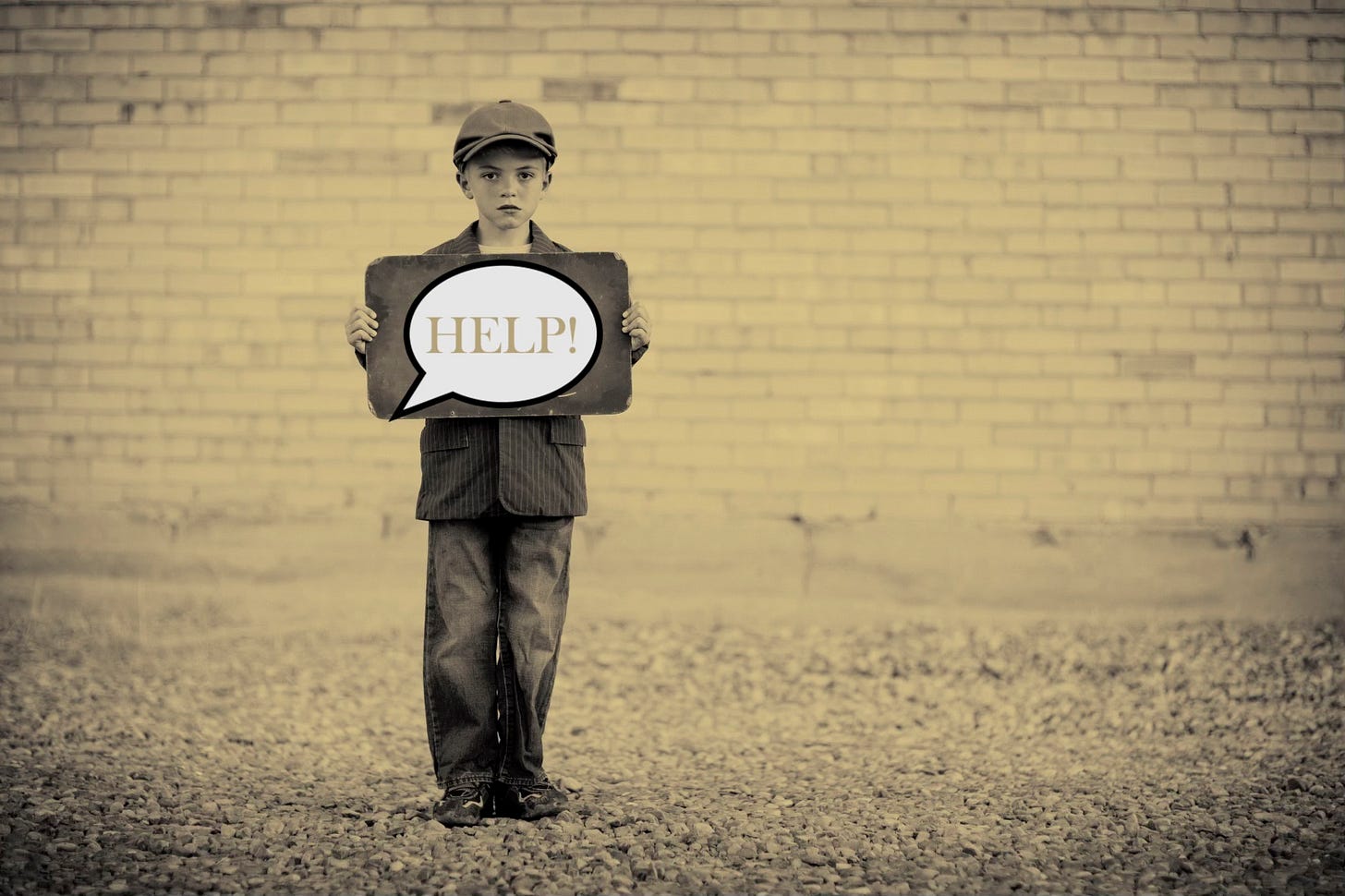The book I’ve held within my head for decades is an unwritten saga, etched in the dusty annals of my memory, yet never making it to the paper. Graham Greene once said that childhood "is the bank balance of a writer," and if that's the case, mine is overflowing with dark riches!
It’s a peculiar account, not of warmth and comfort, but a ledger of emotional skirmishes and strategic withdrawals.
Yesterday, I was conversing with an old friend, the sort of chat that meanders through time and space, touching on everything and nothing.
He asked me “how can you, so precisely, read people’s behaviour.”
The answer, as it often is, lay in the unspoken curriculum of an unsafe childhood. To protect myself, I developed a hyper-awareness, a radar finely tuned to the slightest shifts in mood or tone. It was a survival mechanism. If I could predict how someone might behave, I could brace myself, diffuse the situation, or simply vanish into the shadows.
Fast forward several lifetimes, and this skill has become the backbone of my professional life. As a coach and consultant, I read the unspoken languages, the pauses, the forced smiles, the defensive postures. My friend put his finger on the crux of the matter: childhood trauma leaves indelible marks. It's like a bullet point etched in your psyche, forever altering one’s thought processes and behaviours.
Despite this professional adeptness, as a budding writer, I wrestle with procrastination.
There's a cruel irony in that the same vigilance that served me as a child now hampers my creativity. It turns out, there might be a causal link between past trauma and this learned behaviour of deferring action. The hyper-awareness that once protected me has morphed into an overactive self-critique, paralysing my efforts to write.
I hesitate, rewrite, and abandon drafts, all in an attempt to preempt failure or, dare I even admit it, criticism.
Procrastination, it seems, is not merely a lack of discipline but a manifestation of deeper wounds. It’s a subtle self-sabotage, a way of avoiding the vulnerability that writing demands. To put words on paper is to expose oneself, to risk judgement, and for someone who grew up dodging emotional grenades, that is a daunting prospect.
In reflecting on this, I realise that my procrastination is less about laziness and more about self-preservation. Writing requires a certain recklessness, a willingness to delve into the messy, uncharted territories of one's mind and heart. Yet, for those of us trained to stay alert and guarded, this is akin to walking into a minefield.
The bank balance of my childhood is indeed full, but it's a currency of caution and wariness. Each sentence I write feels like a tentative step forward, always with a glance over the shoulder. However, there's also a wealth of material, a depth of understanding of the human condition that could be mined if only I could lower my defences.
Understanding this link between trauma and procrastination is a step towards overcoming it. It means acknowledging that my delays are not a personal failing but a learned behaviour, one that can be unlearned. It’s about giving myself permission to write badly, to write vulnerably, to write at all.
So, to all fellow procrastinators, especially those with a similar history, remember this:
“Our hesitation is rooted in survival, but our growth lies in courage.”
The courage to sit down, to write, to face the ghosts of our past, and to let them fuel our creativity rather than stifle it. Our childhoods may have filled our bank balances with caution, but we have the power to spend it wisely, investing in stories that deserve to be told.
Knowing what the problem is, is always the first step to solving it.
What helps you get past procrastination?





